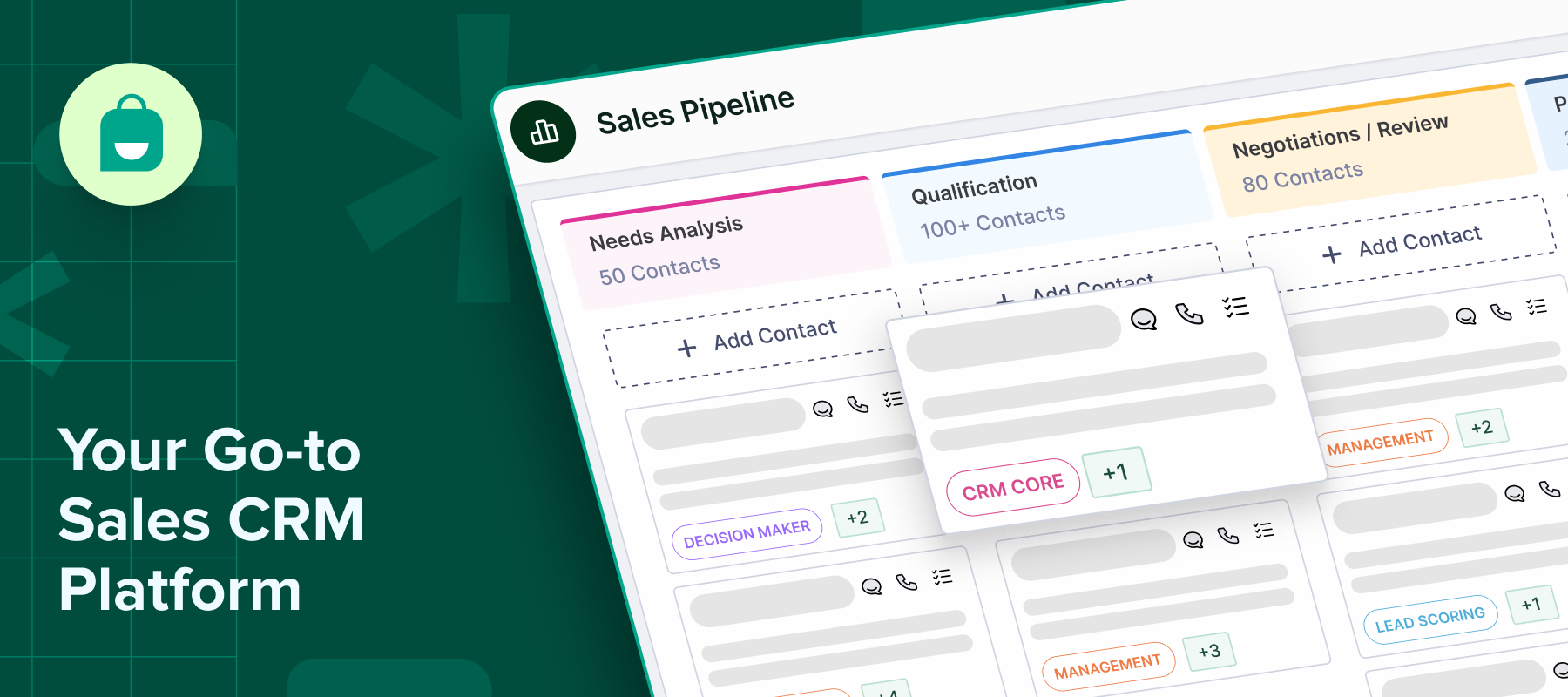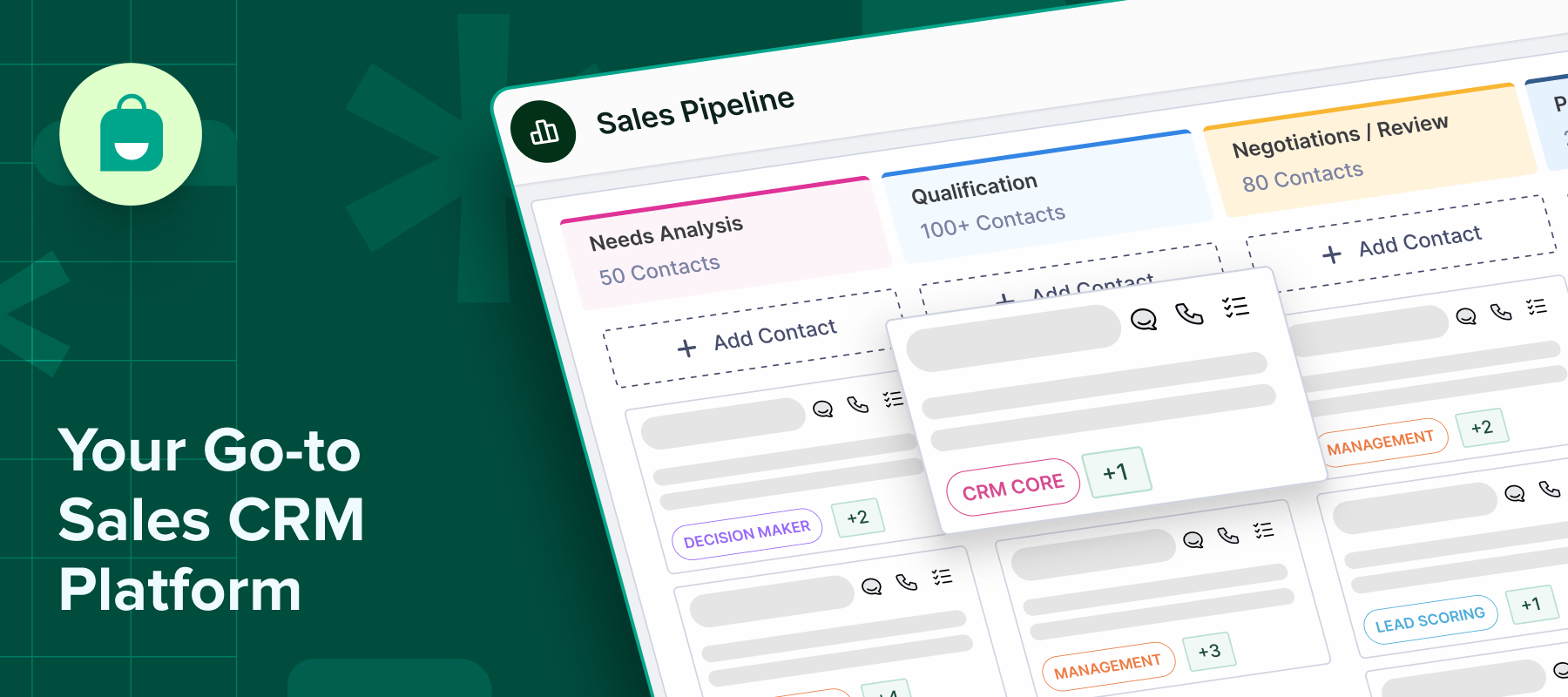CRM systems have long been the backbone of customer engagement, helping teams manage contacts, track interactions, and close deals more efficiently. They centralize data across channels and provide clear visibility along with actionable insights.
Yet, as messaging apps redefine how we communicate, a new player has emerged, WhatsApp CRM. This evolution has led businesses to reevaluate how they connect with customers in real time.
Unlike traditional platforms that rely heavily on email and phone calls, WhatsApp Sales CRM leverages instant messaging to deliver real-time support, build rapport, and drive conversions.
In this post, we discuss the key differences between the WhatsApp CRM and traditional CRM.
What is WhatsApp CRM?
A WhatsApp CRM is a customer relationship management system that integrates directly with WhatsApp, enabling businesses to manage customer interactions within the messaging platform. It centralizes communication, allowing teams to track conversations, automate responses, and maintain customer context, without switching tools.
How it integrates with WhatsApp Business API
WhatsApp CRM platforms integrate with WhatsApp through the WhatsApp Business API, which is built for large-scale, structured communication.
Unlike the WhatsApp Business App, which is limited to manual use on a single device, the API allows backend integration with CRM systems. This enables automated, secure, and centralized handling of customer conversations at scale.
Through this integration, messages sent and received via WhatsApp are synced directly into the CRM, allowing teams to manage conversations, trigger workflows, assign chats, and access full customer context within a unified system.
Use cases of WhatsApp CRM
Here are some key use cases of WhatsApp CRM:
-Real-time customer chats: Engage with customers instantly through two-way messaging, improving response speed and satisfaction.
-Automated replies and workflows: Set up quick replies, greeting messages, and triggered responses to handle common queries without manual effort.
-Lead capture and qualification: Capture leads directly from WhatsApp, qualify them using pre-set questions or bots, and route them to the right sales reps.
-Sales pipeline management: Track conversations by deal stage, assign leads, and update statuses, directly from the chat interface within the CRM.
–Customer segmentation: Tag contacts based on behavior or conversation history to enable targeted campaigns or personalized outreach.
What is Traditional CRM
Traditional CRM (Customer Relationship Management) systems are centralized platforms designed to manage a company’s interactions with current and potential customers across channels. These systems store customer data, track engagement history, streamline sales workflows, and provide reporting tools to help teams drive growth and maintain relationships.
Popular platforms in this category include Salesforce, Zoho CRM, and HubSpot, which are widely used across industries for sales, marketing, and support operations.
Core features of Traditional CRM
Here are some core features of traditional CRM:
-Contact and account management: Centralized database for storing customer profiles, communication history, and related documentation.
-Sales pipeline and deal tracking: Visual workflows to track prospects through each sales funnel stage.
-Task and activity management: Tools to schedule follow-ups, assign tasks, and manage daily to-dos for sales or service teams.
-Email and call integration: Syncs communication logs with customer records for consistent context across touchpoints.
-Third-party integrations: Connects with external tools like marketing automation platforms, ERP systems, or e-commerce platforms to create a unified workflow.
Key Differences Between WhatsApp CRM and Traditional CRM
Here are some key differences between WhatsApp CRM and traditional CRM:
1. Communication channels
-WhatsApp CRM: Focuses on real-time, chat-based communication through WhatsApp. It’s immediate, personal, and always-on.
-Traditional CRM: Primarily uses emails, phone calls, and web forms. Better for formal communication, but slower and less interactive.
2. User experience & accessibility
-WhatsApp CRM: Built for mobile-first usage. The interface is familiar, simple, and designed for fast interactions on the go.
-Traditional CRM: Designed for internal teams with more complex dashboards and workflows. Best used on desktop or enterprise environments.
3. Automation & chatbots
-WhatsApp CRM: Leverages chatbots, quick replies, and message flows to handle common queries instantly.
-Traditional CRM: This type of CRM focuses on workflow automation, such as follow-ups, lead scoring, and email campaigns, and is suited for longer processes.
4. Integration capabilities
-WhatsApp CRM: Integrates mainly via the WhatsApp Business API, with limited but deep messaging-specific connections.
-Traditional CRM: Offers a wide range of third-party integrations, covering sales, support, marketing, and analytics platforms.
5. Customer engagement style
-WhatsApp CRM: Conversational, informal, and immediate, ideal for businesses that want to build rapport quickly.
-Traditional CRM: Structured, formal, and process-driven, better for businesses with longer and multi-stage customer journeys.
6. Cost & scalability
-WhatsApp CRM: Typically, it is more cost-effective and quicker to deploy. Best for small to mid-sized teams or direct-to-customer models.
-Traditional CRM: Higher upfront investment and longer implementation cycles. Suited for enterprises with complex requirements.
Which One Should You Choose?
Choosing between WhatsApp CRM and Traditional CRM depends on how your business operates, consumer preferences and the experience you want to offer.
Factors to consider while choosing a CRM
Here are some key factors that you can consider while choosing a CRM:
-Business size – Consider the size of your team, the number of users who will need access, and whether you require role-based permissions or multiple departments using the system.
-Sales process – Understand the complexity and length of your sales cycle. Are your deals simple and fast-moving, or do they involve multiple touchpoints and decision-makers?
-Customer base and communication habits – Consider how your customers prefer to interact via messaging apps, emails, or phone calls, and how frequently they engage with your business.
-Budget and implementation constraints – Factor in your available budget, how quickly you need to go live, and how much time or technical effort you can invest in setting up and maintaining the system.
When WhatsApp CRM is ideal
WhatsApp CRM is best for businesses that rely on fast, informal, and high-touch communication. This includes D2C brands, appointment-based services, e-commerce, local businesses, and startups looking to scale quickly without heavy infrastructure.
It’s also ideal if you’re targeting mobile-first audiences, especially in regions where WhatsApp is a primary communication tool. With a single interface, you can respond faster, personalize interactions, and maintain context.
If customer experience and agility matter more than layered CRM complexity, WhatsApp CRM delivers better ROI.
When Traditional CRM is better
Traditional CRM systems fit large or growing businesses that need structure, detailed reporting, and multi-department workflows. They’re built to handle longer sales cycles, multiple touchpoints, complex lead nurturing, and pipeline management across large teams.
If your sales or support process involves multiple stages, internal handoffs, and integrations with tools like ERP, marketing automation, or BI platforms, traditional CRM offers the flexibility you need.
Conclusion
Choosing the right CRM depends on your business needs, how you sell, how your team works, and how your customers prefer to connect. It’s not about picking the most feature-rich tool but the one that fits your workflow.
If fast, direct, and real-time communication is your priority, Interakt CRM offers a WhatsApp-first solution that keeps things simple, scalable, and customer-focused.


